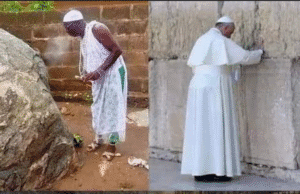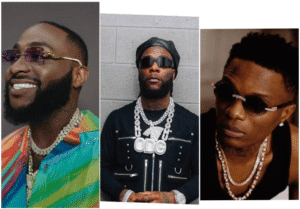Myths across African countries
African countries are rich in culture, history, traditions, and myths across African countries. Myths, a significant part of African cultures, are stories passed down through generations. These stories explain life, the universe, and moral values. Each region in Africa has unique myths that reflect its history, environment, and beliefs. This blog compares myths from different African countries, exploring their themes, significance, and the lessons they teach.
What Are Myths and Their Role in African Cultures?
What Are Myths?
Myths are traditional stories that explain the mysteries of life and nature. They are often about gods, spirits, and heroes. Myths help people understand the world and their place in it. In Africa, myths are more than stories; they are tools for teaching, preserving history, and passing down values.
The Role of Myths in African Cultures
In African societies, myths are important for many reasons:
- Education: Myths teach children about their culture and history.
- Morals: They explain the difference between right and wrong.
- Spirituality: Myths connect people to their gods and ancestors.
- Identity: They preserve the unique traditions of each community.
For example, myths about creation help people understand how the world began, while trickster stories show how cleverness can solve problems.
Myths across African countries
Regional Variations of African Myths
Africa is a vast continent with diverse cultures. Let’s explore myths from different regions and the values they reflect.
West African Myths: Creation and Trickster Tales
West Africa is known for its rich storytelling traditions.
The Tortoise and the Sky (Mbe’s Greed)
This famous Igbo folktale is about Mbe, the tortoise, who tricks birds into giving him feathers so he can attend a feast in the sky. Once there, he selfishly eats all the food, leaving none for the birds. Angry, the birds take back their feathers, and Mbe falls to the ground, cracking his shell.
- Lesson: This myth warns against greed and selfishness. It also explains why tortoises have cracked shells.
- Anansi the Spider (Ghana):
Anansi is a famous trickster who uses his cleverness to outsmart others. He is often seen as a symbol of wisdom and creativity. In one myth, Anansi tricks powerful spirits to bring stories to humans, teaching the value of knowledge and persistence.
Central African Myths: Spirits and the Supernatural
Central African myths often focus on spirits and the connection between the living and the dead.
- The Mwindo Epic (DR Congo):
This is the story of Mwindo, a hero who goes on a journey to save his people. Mwindo fights supernatural enemies and learns important lessons about leadership and kindness. This myth highlights bravery, community, and respect for spirits.
East African Myths: Origins and Legends
East African myths often explain the origins of people and nature.
- The Legend of Gikuyu and Mumbi (Kenya):
This myth tells the story of Gikuyu and Mumbi, the first parents of the Kikuyu people. They were blessed by the god Ngai and given land to live on. The story emphasizes unity, hard work, and gratitude to divine powers.
Southern African Myths: Natural Phenomena and Sacred Sites
Southern African myths often connect people to nature and sacred places.
- The Rain Queen Modjadji (South Africa):
The Rain Queen is believed to control the rain and ensure good harvests. Her story reflects respect for nature and the importance of leadership. The myth teaches that balance and harmony with the environment are essential.
North African Myths: Ancient Gods and Fables
North African myths are influenced by ancient civilizations like Egypt.
- The Myths of Isis and Osiris (Egypt):
Isis and Osiris are gods who represent life, death, and rebirth. Their story is about love, sacrifice, and the cycle of nature. This myth shows the connection between humans and the universe.
Common Themes in African Myths
African myths are diverse, but many share common themes:
- Creation Myths: Stories about how the world and humans were created, like Gikuyu and Mumbi in Kenya.
- Deities and Spirits: Myths often feature gods and ancestors who guide or test humans.
- Animals as Symbols: Animals like Anansi the Spider or lions in East African myths symbolize wisdom, strength, or trickery.
- Moral Lessons: Every myth teaches a lesson, whether it’s about honesty, bravery, or kindness.
How Myths Reflect Africa’s Diversity and Unity
Africa is diverse, with over 50 countries and thousands of ethnic groups. Myths reflect this diversity through unique stories, characters, and settings.
- Diversity: Myths are shaped by the environment, like the deserts of North Africa or the forests of Central Africa. For example, the Rain Queen myth is unique to Southern Africa’s natural landscape.
- Unity: Despite differences, African myths share common values like respect for family, community, and nature. They connect people across the continent by teaching similar lessons about life and morality.
Why Preserving African Myths Is Important
As the world changes, some traditional stories are being forgotten. It’s crucial to preserve African myths for several reasons:
- Cultural Heritage: Myths are a treasure of history and traditions. They remind people of their roots.
- Education: Myths can teach new generations about their identity and values.
- Connection to the Past: Myths keep people connected to their ancestors and the spiritual world.
Challenges: Modernization and globalization are replacing traditional stories with foreign influences. It’s essential to document these myths and share them widely to ensure they survive.
FAQs
1. What are the most famous African myths?
Some famous African myths include Anansi the Spider (Ghana), the Rain Queen Modjadji (South Africa), and the Legend of Isis and Osiris (Egypt).
2. Why are myths important in African culture?
Myths teach moral values, preserve history, and connect people to their spirituality. They also strengthen cultural identity.
3. How do African myths compare to myths from other continents?
While African myths are unique, they share similarities with myths from other parts of the world, like creation stories and moral lessons.
4. What lessons can we learn from African myths today?
African myths teach timeless lessons about respect, courage, honesty, and living in harmony with nature.
Conclusion
Celebrating Africa’s Mythical Heritage
African myths are a treasure of wisdom, culture, and history. They reveal the diversity and unity of the continent, showing how people across different regions understand the world and their place in it. As we modernize, it’s important to preserve these stories for future generations. By exploring and sharing African myths, we celebrate the continent’s rich heritage and learn valuable lessons about life.



